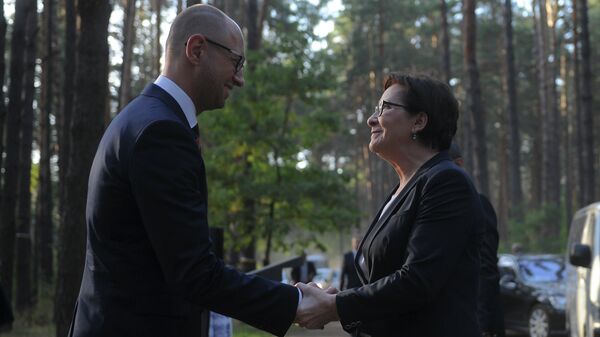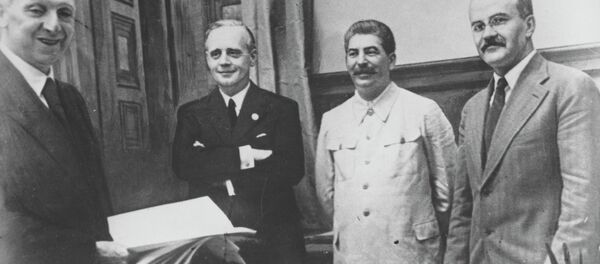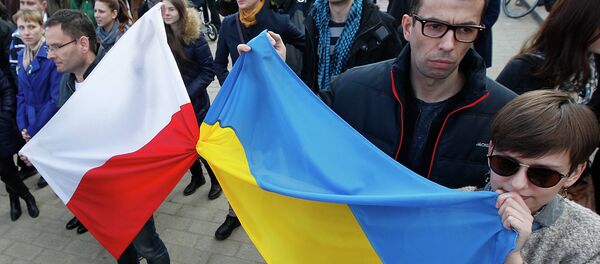The Molotov-Ribbentrop Pact, a non-aggression pact signed between the Soviet Union and Nazi Germany in 1939 on the eve of the Second World War, resulted in the return of Polish-controlled territories in western Belarus and Ukraine lost during the Polish-Soviet War of 1919-1921 to the Soviet Union, effectively forming the western borders of the two future countries following the USSR's collapse.
Speaking alongside Polish Prime Minister Ewa Kopacz, who had arrived in the Ukrainian village of Bykivnia on Thursday to participate in a commemoration to the Polish officers killed by Soviet security forces during the war, Yatsenyuk declared that the Molotov-Ribbentrop Pact was directed not only against Poland, but against Ukraine as well, Polish newspaper Kresy reported.
"Having concluded this pact, the Bolsheviks-Communists and the Nazis acted against Poland and Ukraine, dividing our countries and humiliating our people," Yatsenyuk said, adding that the pact was responsible for unleashing the Second World War.
Following the signing of the Molotov-Ribbentrop Pact, the Ukrainian Soviet Socialist Republic, from which post-independence Ukraine eventually emerged, received the regions of Volyn, Ternopil, Ivano-Frankivsk, and Rivne, as well as the region of Lviv and its capital of the same name. Lviv, which had never been part of the Russian Empire, had previously been one of the wealthiest cities in the Austro-Hungarian Empire, and served as the jewel in the crown of interwar Poland's eastern holdings. Following the Polish-Soviet War, Lviv served as Poland's third most populous city, and was widely considered to be the second most important cultural and academic center in the country after Warsaw.
Social media users who didn't launch an outright attack on the prime minister seemed dumbfounded by his comment, with a user on news and analysis site PolitNavigator.net asking "Let me get this right: western Ukraine uniting with the rest of Ukraine was directed against Ukraine's interest? Did Yatsenyuk even understand what he just said?"
Last year, following Ukraine's signing of the EU's Association Agreement, several Polish civil organizations declared that they would file lawsuits to make a case for the restitution of property in western Ukraine which was seized from Poles following the region's transfer to Soviet Ukraine.
Moreover, recent polling by the Warsaw Institute of Public Affairs, in cooperation with their counterparts in Kiev, found that nearly half of Poles continue to view Ukraine and Ukrainians negatively, with 38 percent indifferent, and only 23 percent saying that they were willing to fully recognize the legitimacy of the contemporary Polish-Ukrainian border.
Standard Fare





